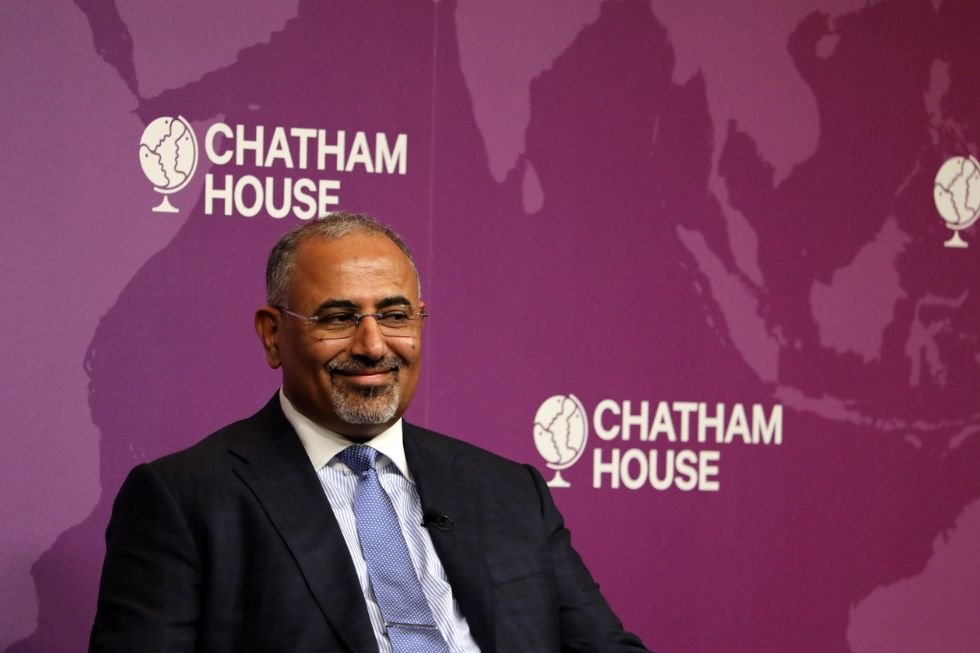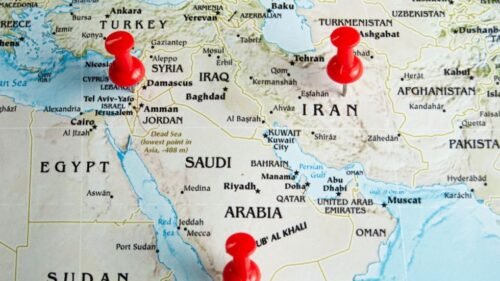The recent decisions by Aidrous Al-Zubaidi, Vice President of Yemen’s Presidential Leadership Council (PLC) and head of the Southern Transitional Council (STC), represent a turning point in Yemen’s fragile political balance. On September 10, Al-Zubaidi appointed 14 officials across ministries, local government, and the oil sector, taking an unprecedented step since the formation of the PLC in April 2022.
Breaking with convention
Traditionally, such decisions have been the sole prerogative of PLC Chairman Rashad Al-Alimi, made only after consultation with other council members. By directly appointing a deputy minister for information, an undersecretary for industry and trade, a new chairman of the General Authority for Land and Planning, and deputy governors in six Southern governorates, Al-Zubaidi has broken this monopoly of authority.
This was not a bureaucratic shuffle. It was a political statement: the South will no longer accept symbolic representation while being sidelined from real governance.
The southern message
The appointments were accompanied by a strongly worded STC statement accusing unnamed “power centers” of obstructing salary payments, ignoring the 2019 Riyadh Agreement and stalling implementation of the 2022 Riyadh Consultations. The message conveyed that we cannot build justice, rights, and partnership on exclusion. For years, the South has warned that marginalization breeds instability. These decisions, published even by the government’s official October 14 newspaper, underline the fact that Southern leaders are prepared to act decisively to safeguard their people’s interests.
Escalating confrontation
The reaction from STC leaders suggests a deliberate escalation. In a televised interview, Anis Al-Sharafi, chairman of the STC Political Bureau, warned that he would declare a state of emergency if anyone blocked Al-Zubaidi’s decisions. This is more than rhetoric. It reflects growing frustration at what STC negotiator Nasser Al-Khobaji has called the absence of executive regulations within the PLC and the lack of a coherent strategy for dealing with the Houthis.
Other council members are also voicing discontent. In June 2025, Tariq Saleh’s National Resistance accused Al-Alimi of sidelining his role and excluding his office from decision-making. This highlights the fractured nature of the PLC, three years after its creation.
Public pressure
Beyond the council chambers, the Southern street is restless. Worsening economic conditions, corruption, and failing services — primarily electricity — have triggered widespread protests in Aden, Hadramout, and Al Dhalea. The STC, as the South’s principal political representative, is under pressure to demonstrate tangible governance, rather than simply issuing political statements.
By making bold appointments, Al-Zubaidi is signaling to his base that the STC is ready to move from opposition to responsibility — wielding absolute authority, not just demanding it.
What next?
The implications are significant. If these appointments are recognized and implemented, they could mark the start of a more balanced distribution of power within the PLC. If obstructed, they risk plunging the council into deeper paralysis, accelerating fragmentation.
Either way, the era of symbolic participation for the South is over. These actions are part of a wider trajectory in which the South is steadily asserting its right to be a genuine partner in governance — and ultimately to determine its own political future.
Don’t dismiss Al-Zubaidi’s bold move as a Southern gambit. It reflects structural failures within the PLC and the urgent need for reform. Without addressing Southern grievances, Yemen’s internationally recognized government risks losing both legitimacy and functionality.
The South is no longer asking for recognition — it is taking it.
[Liam Roman edited this piece.]
The views expressed in this article are the author’s own and do not necessarily reflect Fair Observer’s editorial policy.
Support Fair Observer
We rely on your support for our independence, diversity and quality.
For more than 10 years, Fair Observer has been free, fair and independent. No billionaire owns us, no advertisers control us. We are a reader-supported nonprofit. Unlike many other publications, we keep our content free for readers regardless of where they live or whether they can afford to pay. We have no paywalls and no ads.
In the post-truth era of fake news, echo chambers and filter bubbles, we publish a plurality of perspectives from around the world. Anyone can publish with us, but everyone goes through a rigorous editorial process. So, you get fact-checked, well-reasoned content instead of noise.
We publish 3,000+ voices from 90+ countries. We also conduct education and training programs
on subjects ranging from digital media and journalism to writing and critical thinking. This
doesn’t come cheap. Servers, editors, trainers and web developers cost
money.
Please consider supporting us on a regular basis as a recurring donor or a
sustaining member.
Will you support FO’s journalism?
We rely on your support for our independence, diversity and quality.








Comment